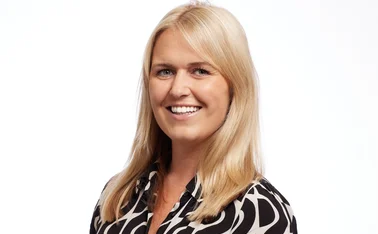
Blog: Underinsurance in a hardening market

Alistair Steward, Questgates director, mulls the problem of underinsurance for businesses facing a hardening market.
As the first anniversary of Covid-19 imposed restrictions approaches, the insurance market continues to face challenges flowing from an economy greatly weakened by the effects of this devastating pandemic.
With no immediate end in sight, stories abound of capacity being removed and certain classes of business seemingly becoming almost impossible to insure, while brokers report that the imposition of restrictive renewal terms and rising premiums is becoming commonplace. Few though seem to have commented on the claims aspect and the likely challenges a business will face when submitting a claim in 2021.
Underinsurance is a classic point in question.
In the years leading up to 2020, the market experienced a distinct reduction in the number of commercial property claims complicated by the discovery of underinsurance. Businesses had become better informed as to the basis on which their sums insured needed to be set and the broker community had better access to companies offering specialist insurance valuation services. Our data showed that clients were receiving a valuation for the first time in just 52% of buildings valuations conducted in 2019 compared to 77% in 2015 and the average number of valuations where underinsurance was discovered fell from 87% to 68%.
Loss adjusters reported a fall in the number of claim payments being reduced due to the application of an underinsurance induced proportionate remedy, alongside a sizeable reduction in complaints.
So, what changed last year and why does it matter?
Many businesses are now in a precarious financial position and their survival partly depends on very close management of cost. The temptation to achieve cost savings by reducing existing insurance cover, lowering an indemnity period on a business interruption policy or set a sum insured at renewal that is less than a full value at risk is very real. Indeed, there are signs that this is already happening. In the six months following the announcement last March of the first lockdown, there was a clear dip in the level of enquiries received from companies requesting an insurance valuation – whether for buildings, plant and machinery or BI related requests.
Whether companies are aware of the risks involved and prepared to accept them in these desperate times or whether they are still driven by the “it won’t happen to us” mentality are gambles that history tells us can have a dire outcome. Often businesses say that they believed penalties for underinsurance only apply in a total loss situation yet, of course, that is not the case.
Only recently a family run convenience store and petrol station discovered, following a valuation, that its existing buildings sum insured of £1.4m was inadequate and the actual value at risk was in the region of £2m. It did not intentionally under-insure and immediately increased its sums insured, but imagine this discrepancy being discovered following a fire or flood. A £100,000 claim would be proportionally reduced, leaving the customer with a shortfall of around £30,000 which could represent the difference between business survival or closure in the current climate.
And the hardening market is likely to provide little comfort in a case such as this. While insurers will still wish to deliver on the promise made at policy inception, it stands to reason that in a shrinking economy where every business has to watch the bottom line, insurers are no different and the terms and conditions of an insurance policy will be strictly observed.
The quickest route to a positive claims experience in these trying times will not involve the cutting of corners. It will be achieved by all stakeholders taking collective responsibility in ensuring the right cover and appropriate sums insured are maintained.
Only users who have a paid subscription or are part of a corporate subscription are able to print or copy content.
To access these options, along with all other subscription benefits, please contact info@postonline.co.uk or view our subscription options here: https://subscriptions.postonline.co.uk/subscribe
You are currently unable to print this content. Please contact info@postonline.co.uk to find out more.
You are currently unable to copy this content. Please contact info@postonline.co.uk to find out more.
Copyright Infopro Digital Limited. All rights reserved.
As outlined in our terms and conditions, https://www.infopro-digital.com/terms-and-conditions/subscriptions/ (point 2.4), printing is limited to a single copy.
If you would like to purchase additional rights please email info@postonline.co.uk
Copyright Infopro Digital Limited. All rights reserved.
You may share this content using our article tools. As outlined in our terms and conditions, https://www.infopro-digital.com/terms-and-conditions/subscriptions/ (clause 2.4), an Authorised User may only make one copy of the materials for their own personal use. You must also comply with the restrictions in clause 2.5.
If you would like to purchase additional rights please email info@postonline.co.uk








